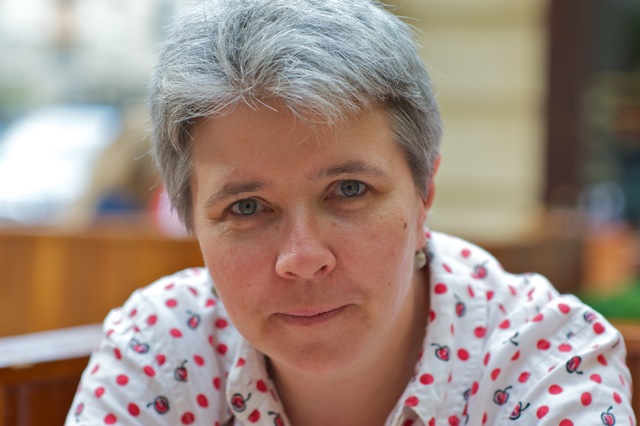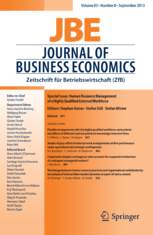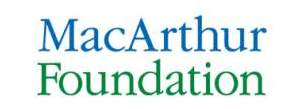COPE statement on inappropriate manipulation of peer review processes
The Committee on Publication Ethics (COPE) has become aware of systematic, inappropriate attempts to manipulate the peer review processes of several journals across different publishers. These manipulations appear to have been orchestrated by a number of third party agencies offering services to authors. This statement is issued on behalf of COPE after consultation with a variety of publishers to underscore the seriousness with which we take these issues and our determination to address them.
While there are a number of well-established reputable agencies offering manuscript-preparation services to authors, investigations at several journals suggests that some agencies are selling services, ranging from authorship of pre-written manuscripts to providing fabricated contact details for peer reviewers during the submission process and then supplying reviews from these fabricated addresses. Some of these peer reviewer accounts have the names of seemingly real researchers but with email addresses that differ from those from their institutions or associated with their previous publications, others appear to be completely fictitious
We are unclear how far authors of the submitted manuscripts are aware that the reviewer names and email addresses provided by these agencies are fraudulent. However, given the seriousness and potential scale of the investigation findings, we believe that the scientific integrity of manuscripts submitted via these agencies is significantly undermined. Publishers who already know they are affected will be publishing statements on their own websites and will be taking the following immediate actions.
● Articles that have been published solely on the basis of reviews from fabricated contacts will be retracted in line with COPE guidance and authors and institutions involved will be contacted.
● Publishers are examining their own databases for the presence of fabricated reviewer accounts and contact details and will be contacting the authors of papers for which those reviewers were suggested as well as the relevant institutions, even if the papers were not accepted.
Authors with any concerns about inappropriate agency involvement in suggesting peer reviewers or any other aspect of the manuscript preparation and submission process should contact the relevant journal.
COPE is working with publishers, publishing organizations and relevant national bodies to determine how best to address this situation in the longer term. Updates will follow as more information becomes available. We encourage anyone with information on these issues to contact COPE directly.
Nuffield Council on Bioethics report on the on The Culture of Scientific Research in the UK
COPE welcomes the report from the Nuffield Council on Bioethics: The Culture of Scientific Research in the UK. It is timely, coming as it does when there is increased scrutiny of the scientific literature, and importantly an increasing recognition of the need to address fundamental issues such as the lack of reproducibility in science.
The report is the culmination of many months of consultation among the scientific community and its report should be essential reading for anyone involved in journal publishing, and science and publication ethics. In one critical passage the report notes that “Fifty-eight per cent of survey respondents are aware of scientists feeling tempted or under pressure to compromise on research integrity and standards,” and that “Suggested causes include high levels of competition in science and the pressure to publish”.
Rightly the reports notes that there is “a collective obligation for the actors in the system to do everything they can to ensure the culture of research supports good research practice and the production of high quality science” and its recommendations for all involved in research reflect this obligation.
This report lays out once and for all that no-one group can or should be expected to effect change on its own. COPE has long supported editors in their handling of publication misconduct but it has also firmly recognized others’ responsibility in this area, especially that of institutions.
Above all, we welcome the recognition that the culture in science has to have ethical practices at its core – in the report’s words, that we need “an environment in which ethics is seen as a positive and integral part of performing research”. This would chime firmly with COPE”s experience.
Research and publication ethics is not driven nor is it broken by one or two individuals; ethical research and publication practices require a culture of ethical research and publishing with education and support reaching all the way through the system from when a student first steps into higher education through to those at the highest levels of authority.
Second International Congress on Publication Ethics, Shiraz, Iran
The second International Congress on Publication Ethics in Shiraz, Iran, drew together a small but highly engaged group of editors mainly from Iran, but also from Syria, Pakistan, Bangladesh, Norway, and the UK. Topics under discussion included the perennial issues of authorship and conflicts of interest as well as some of the more novel forms of misconduct such as journal hijacking and reviewer impersonation. There was an impressive volume of original research presented by both junior and more seasoned editors. Live presentations delivered via video link from the UK interspersed the proceedings, and two workshops on international standards in journal flow and on dealing with plagiarism provided additional learning opportunities for delegates.

Second International Congress on Publication Ethics in Shiraz, Iran

Left to right: COPE Vice-Chair Charlotte Haug, COPE council member Zoe Mullan, and former COPE council member, Behrooz Astenah
Date set for COPE European Seminar 2015
Following the success of the first COPE European seminar to be held outside the UK, the 2015 seminar will again be held in Brussels, Belgium, on 16-17 April 2015.
The theme of this year's European seminar is “Weighed and measured: how metrics shape publication (mis)behaviour”. Editors, publishers, authors and all those interested in publication ethics are welcome to attend. The full programme will be available shortly. In addition to the all day seminar on Friday 17 April, COPE is holding a half-day Workshop on Thursday 16 April (2.30-4.30pm) with discussion of ethical cases.The full programme will be available shortly.
The seminar will include invited talks, a panel discussion and interactive workshops.
The seminar is free for COPE members and £300 for non-members. Numbers are limited and early booking is advisable. For more information and to register, see the COPE website: http://publicationethics.org/cope-european-seminar-and-workshop-2015
 At the end of December it’s hard to resist the temptation to try to draw out themes from the year. And this year there have been some very big themes; the main one being I think a crystallisation of understanding from groups across the spectrum of academia of how core publication ethics is to research integrity more widely. What has lagged behind somewhat is the acceptance that there are some very fundamental problems within the reward system of academia which even the best practices in publication ethics cannot solve unless the fundamental issues in academia are addressed.
At the end of December it’s hard to resist the temptation to try to draw out themes from the year. And this year there have been some very big themes; the main one being I think a crystallisation of understanding from groups across the spectrum of academia of how core publication ethics is to research integrity more widely. What has lagged behind somewhat is the acceptance that there are some very fundamental problems within the reward system of academia which even the best practices in publication ethics cannot solve unless the fundamental issues in academia are addressed. See comments by Kevin Mac Donnell on Mark Twain's America, a celebration in words and images, by Harry L Katz and The Library of Congress. Little, Brown and Company, 2015
See comments by Kevin Mac Donnell on Mark Twain's America, a celebration in words and images, by Harry L Katz and The Library of Congress. Little, Brown and Company, 2015 Most of the cases were not published because they were discovered by a manuscript editor on a final pre-publication check. The five or so that have been published will go through some sort of re-review, which may result in expressions of concern or retraction. Full story on Retraction Watch
Most of the cases were not published because they were discovered by a manuscript editor on a final pre-publication check. The five or so that have been published will go through some sort of re-review, which may result in expressions of concern or retraction. Full story on Retraction Watch
 From the
From the  The US Department of Health and Human Services (HHS) and National Institutes of Health (NIH) have announced proposals to expand requirements to register clinical trials and report results, and to make that a condition of research funding. Respondents are requested to post responses here
The US Department of Health and Human Services (HHS) and National Institutes of Health (NIH) have announced proposals to expand requirements to register clinical trials and report results, and to make that a condition of research funding. Respondents are requested to post responses here  Thanks to a grant from the
Thanks to a grant from the  Should actor Colin Firth have been listed as an author or acknowledged for his contribution to an imaging study of politicians' brains?
Should actor Colin Firth have been listed as an author or acknowledged for his contribution to an imaging study of politicians' brains?

